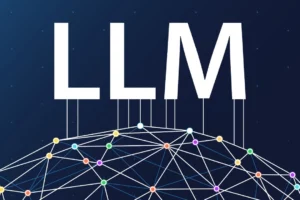In the high-stakes game of cybersecurity, artificial intelligence (AI) has become a powerful new player. As threats grow more advanced, many hope AI and machine learning will tilt the odds in favor of defense. But can smart machines truly outwit cunning human attackers?
AI-driven solutions offer clear advantages. But while the technology is promising, it has limitations. Achieving AI’s full potential requires acknowledging its weaknesses as well as its strengths.
The Rise of AI Cybersecurity Solutions
Cyberattacks are becoming more devastating each year. And traditional tools struggle to match increasingly sophisticated hacking tactics. In response, infosec teams are embracing cutting-edge AI capabilities:
Superior Pattern Recognition
AI examines network traffic, system logs, user behaviors and more to pinpoint subtle signs of infiltration. Its advanced pattern recognition spots early warnings that other defenses miss.
Proactive Threat Prediction
By continuously analyzing new data alongside historical attack info, AI systems predict emerging hacking techniques. These models enable organizations to get ahead of threats.
Automated Response Capabilities
When AI tools detect malicious activity, they can instantly fight back without waiting for human input. This rapid response time is crucial for mitigating damages from attacks.
Looking Beyond the Hype of AI Cybersecurity
AI cybersecurity drives powerful impacts. But hype surrounding machine learning can distort perspective on its realistic capabilities in application. To leverage its potential, it’s essential to acknowledge key constraints:
The Importance of High-Quality Data
An AI system is only as effective as its training data. Incomplete or biased data produces unreliable outputs. Ongoing data fine-tuning is key for accuracy.
The Enduring Need for Human Judgment
AI should augment human analysis, not replace it. With oversight for interpreting findings and strategic planning, AI can enhance expertise rather than overriding it.
Transparency Around Model Decision-Making
If organizations don’t understand how AI tools arrive at conclusions, they cannot vet outputs for unintended bias. Transparency enables accountability around AI cybersecurity systems.

The Future of AI-Driven Cybersecurity Defenses
While AI has constraints, its security applications will rapidly progress. As models leverage more data and computing power, we can expect:
- Increasingly sophisticated algorithms better able to outmaneuver novel attacks
- Tighter integration of AI with existing defenses for more robust, layered protection
- Greater transparency into model decision-making to build trust
Can Machines Outsmart the Most Cunning Hackers?
AI versus human hackers is an endless arms race. As defenses improve, attackers modify methods to evade them. Both sides will continue advancing tactics indefinitely.
But by combining adaptable AI with human insight, organizations can maximize resilience. This fusion empowers rapid, data-driven decisions guided by an understanding of attacker behaviors. Together, machines and experts can tilt the playing field toward more effective cyberprotection.
AI isn’t a silver bullet against every hacking innovation. However, as models evolve, AI and human collaborations will become one of cybersecurity’s most powerful weapons. By acknowledging its constraints alongside its capabilities, the infosec community can responsibly harness its potential against threats both known and still yet to emerge.
















Add Comment